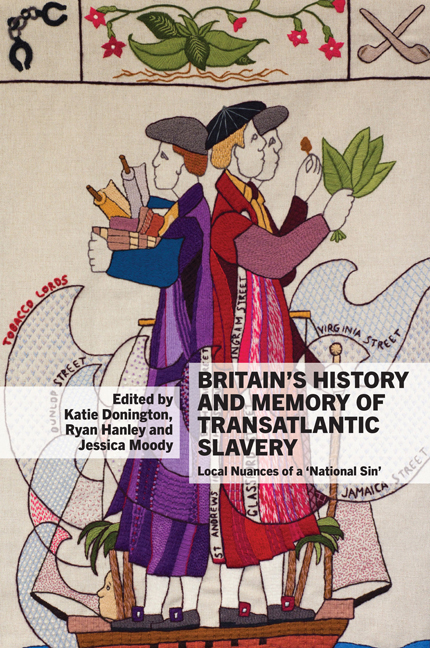Introduction
Summary
No it isn't easy to forget
What we refuse to remember
Grace Nichols, ‘Taint,’ in I is a Long Memoried Woman (1983)Slavery was a part of everyday life in Britain. While most British people never witnessed the scenes of brutal exploitation upon which the plantation system depended, almost all were implicated in it. The perception that it was only wealthy white male plantocrats who benefitted from slavery has enabled broad swathes of the public to reject any sense of themselves as implicated subjects. Falling back on hierarchies of suffering rooted in eighteenth-century pro-slavery discourse, some have responded to the idea that the nation benefitted from slavery by insisting that their families were ‘ordinary’ and therefore free from the taint of British involvement. The British state, and the nation as a whole, reaped the benefits from the duties collected on slave-produced colonial goods. From the upper echelons of the country house-owning elite, to the enterprising merchant classes, to poverty-stricken textile workers, slavery permeated throughout British society. The consumption of cheap slave-produced colonial commodities was widespread; as James Walvin describes, the produce of slave labour – coffee, tobacco and sugar – could be found in the paradigmatic public space of eighteenth-century Britain, the coffee house. When the formal abolition movement began to generate momentum after 1787, British people from all backgrounds, from every corner of the country, participated in that too. The popular imaginary may prioritise the work of a few ‘saints’ in its commemorations of the abolition campaigns, but without millions of signatories to their petitions, and thousands of lives lost across the Atlantic in slave uprisings, they would never have succeeded. The history of British slavery and its abolition is not exclusively the history of the wealthy and privileged any more than it is of the oppressed working classes. It is not ‘black history.’ It is everyone's history.
In Britain the collective history of slavery is a contested terrain; its racialised, classed, gendered and regionalised contours threaten the fragile bonds that give meaning to a unified and unifying vision of ‘Britishness.’ In order to satisfy the construction of a Britain that champions the liberal model of freedom, free trade, democracy and equality, slavery had to be forgotten and abolition remembered.
- Type
- Chapter
- Information
- Britain's History and Memory of Transatlantic SlaveryLocal Nuances of a 'National Sin', pp. 1 - 18Publisher: Liverpool University PressPrint publication year: 2016



